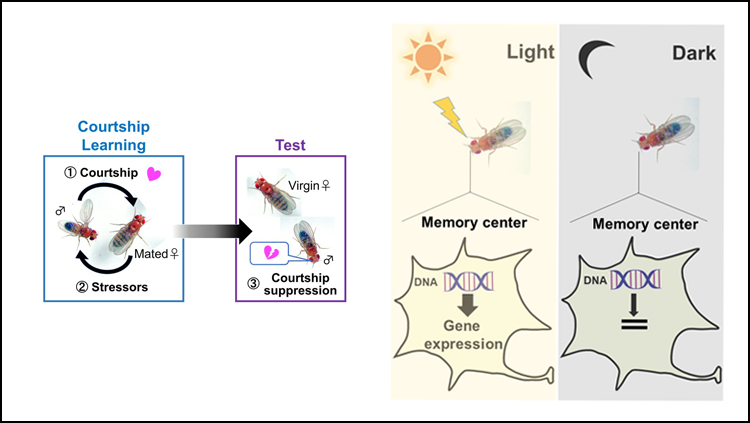Using Light to Learn
Maintaining long-term memories requires environmental light, according to research in fruit flies recently published in JNeurosci.
Memories begin in a temporary form, which are converted into long term memories as protein expression and brain circuits change. But, long term memories require active maintenance in order to survive the changing molecular landscape of the brain. Previous research indicates exposure to different colors of light alters memory function in humans and animals, but the role of natural lighting conditions in memory maintenance remains unknown.
Inami et al. explored this question by testing the ability of male fruit flies to learn that their proposal is not accepted by females through their courtship toward unreceptive females. After the learning period, the male fruit flies were either exposed to constant darkness, constant light, or a 12-hour light/dark cycle. The flies experiencing a light/dark cycle recognized the ready-to-mate females for five days, whereas flies in constant darkness couldn’t maintain the memory. The researchers found environmental light exposure activates light-sensitive neurons, triggering the production of memory maintenance proteins. Darkness during the learning period did not affect memory formation, indicating that light is required for the maintenance, but not creation, of long-term memories.
Read the manuscript in JNeurosci: Environmental Light is Required for Maintenance of Long-Term Memory in Drosophila





















